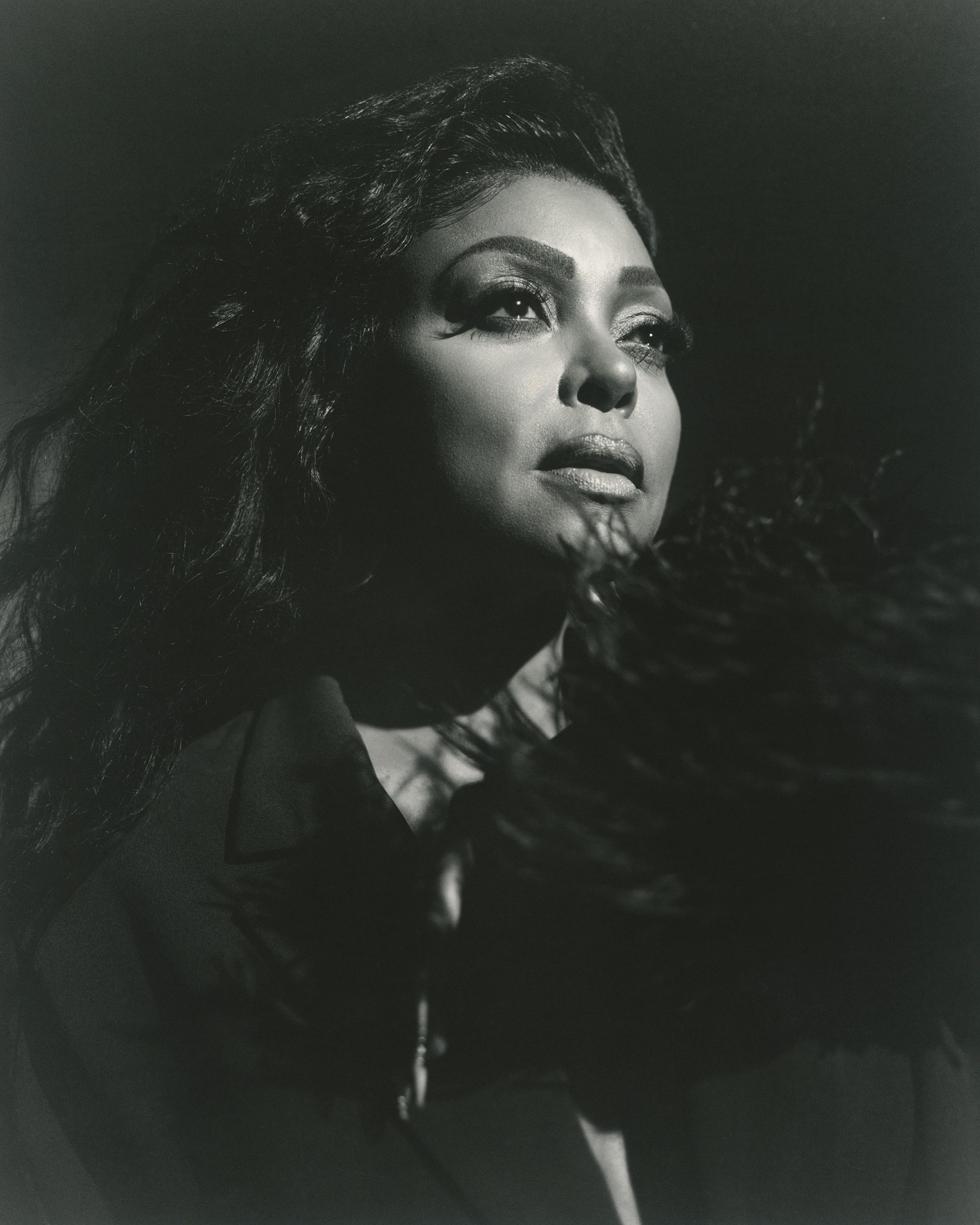Taraji P. Henson often plays towering characters who catapult off the screen with charisma, defiance, and tenacity. She ruled network television for six years as Cookie Lyon in Empire and stole scenes from Brad Pitt in The Curious Case of Benjamin Button. She lights up her latest film, a musical adaptation of The Color Purple, as the swaggering singer Shug Avery, belting blues anthems in a swampside juke joint as she holds men and women alike in the palm of her hand.
But Henson brings a lot more than sheer bluster to these roles. “The way I see it, people who have these big personas, that’s a defense mechanism covering their most prized possession: their heart,” she says. “They’re like, ‘See this hand, so you don’t see what’s really going on.’”
Lately, Henson, one of Hollywood’s most electric personalities and prolific stars, has been pulling back the curtain, sharing her frustration and heartbreak as a Black woman in the industry. In December, she broke down in tears during an interview with Gayle King over her struggle to be paid fairly. Her words sparked an outpouring of affirmation and a larger dialogue about the pervasive pay gap, both in and outside of Hollywood. A 2019 study found that female stars generally earned $1.1 million less than male stars with similar experience. A 2023 Pew study found that nationwide, Black women earned 70% as much as white men.
Despite years of success and accolades, Henson says she still receives lowball offers at every turn—and this for a woman who has breached the upper echelon of Hollywood, who has received nominations for an Oscar and four Emmys over nearly three decades onscreen. Her uphill battle for fair pay and equal treatment has left her wondering if she should quit. She has started entrepreneurial endeavors—a production company and a hair-care brand—in the hopes that one of her ventures will allow her to escape the grind of always searching for the next gig. “I’m 53, and I’m getting tired,” she says. “And then the disrespect: if there’s a playground no one wants you to play on, are you going to keep showing up and hurting yourself?”

The first film adaptation of The Color Purple, Alice Walker’s Pulitzer Prize–winning novel, arrived in 1985. Henson was 15, and was bowled over by the movie’s ambition and nuanced centering of Black interiority. “That’s when I really started getting serious about acting,” she recalls. “I was like, ‘Oh wow, I could really be a movie star.’”
She was especially intrigued by the relationship between the meek Celie and the flashy, self-possessed Shug Avery, who teaches Celie to love herself. But Shug, too, has her own insecurities. “She’s pouring out her heart and soul,” Henson says. “But who really sees her?”
It would be years before Henson would be ready to take on such a mammoth role as Shug. As a young mother, she cycled through jobs, including as a receptionist and a singing waiter on a cruise ship. Her breakout came in 2005, with Hustle & Flow, and she has worked steadily ever since. Yet Henson describes even her biggest successes as tinged with humiliation and anxiety. For The Curious Case of Benjamin Button, Henson says she was offered a mere $75,000 salary compared with the millions earned by her co-star Pitt. During the filming of 2016’s Hidden Figures, in which she played the indefatigable NASA mathematician Katherine Johnson, she was navigating personal problems, she says, which imbued her scenes in which she faced racism and sexism with an added level of pathos. “My life does that a lot—sometimes the characters bleed over,” she says. “So I have to be conscious of making sure I’m not losing myself.”
Henson knows that many of the issues she faces extend to her whole community. “We have seven generations of trauma living in our bodies from slavery that we haven’t unpacked,” she says. In 2019, she testified to Congress about the mental-health crises for Black Americans. She hopes to eventually open a culturally competent rehab center in Maryland, on a property she says dates back to when an ancestor received their postslavery “40 acres and a mule.”
And she hopes that speaking openly about inequities in her industry will encourage others to do the same. “If we stay talking in small little circles, that’s not going to change anything,” she says. “But we do have allies out there, which I’ve found out by telling my truth.”
Henson is set on holding the door open for those who endeavor to follow in her footsteps, despite the challenges she has faced. She summons the strengths of her characters in service of that goal. “I’m in a movie about women who don’t have a voice and are trying to find it,” she says, referring to The Color Purple. “So who’s going to stand up for them?”
—
Styled by Wayman + Micah at The Only Agency; hair by Tym Wallace; make-up by Saisha Beecham; production by De La Revolucion
- Why Trump’s Message Worked on Latino Men
- What Trump’s Win Could Mean for Housing
- The 100 Must-Read Books of 2024
- Sleep Doctors Share the 1 Tip That’s Changed Their Lives
- Column: Let’s Bring Back Romance
- What It’s Like to Have Long COVID As a Kid
- FX’s Say Nothing Is the Must-Watch Political Thriller of 2024
- Merle Bombardieri Is Helping People Make the Baby Decision
